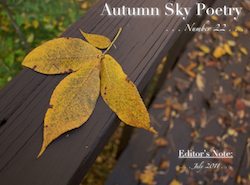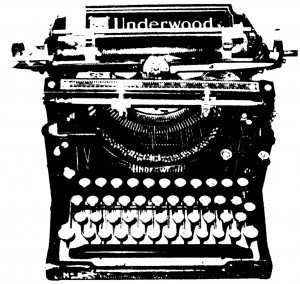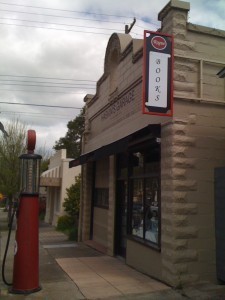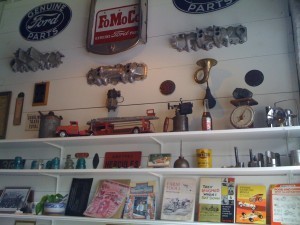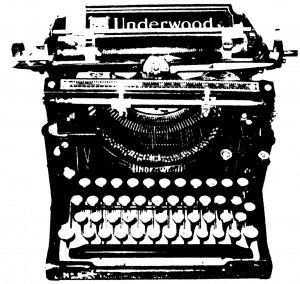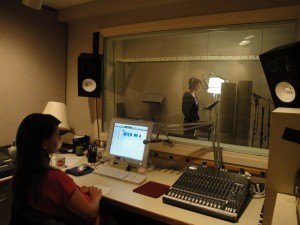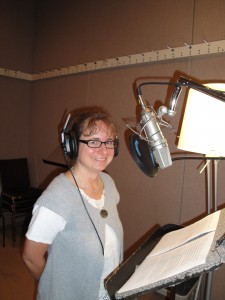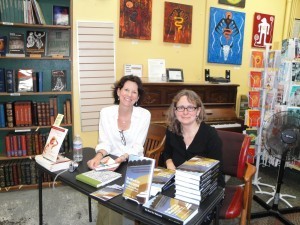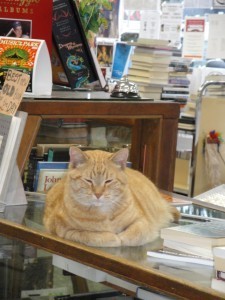Midge Raymond's Blog, page 44
September 5, 2011
Weekly Writing: Guest prompt by David Hubbard
This week, I'm delighted to feature a guest prompt by the very talented David Hubbard, who is one of those rare writers who excels at both poetry and prose.
David is a writer/poet living in Carlsbad, California, about thirty-five miles north of San Diego, where he works as an environmental law attorney. He published poetry in the late 1990s, stopped writing for about fifteen years to pursue a law career, and recently started up again. Last year, he had a story published in the May issue of Marginalia and also has a poem forthcoming in Gargoyle Magazine.
When David recently told me about an inspiring writing exercise he did, which resulted not only in solving a writing issue but also led to the publication of a new poem (see below), I invited him to do this guest prompt. It's a fabulous exercise for all writers, and I think you'll enjoy it. Best of all, you'll find a link to the published poem that grew out of it. Enjoy:
When I write a short story, I usually have a pretty good idea how to move the narrative from point A to point Z. There aren't many scenes or episodes to keep track of and I don't often get stuck. But now I'm writing a novel about the travels and trials of a young American photographer. There are a lot more things to juggle, technically speaking, and I recently ran into a problem that seemed intractable. I was trying to write an important scene that involves a house fire in New Orleans, and I couldn't get the pieces to fit together. No matter what angle I attempted, I couldn't make it right. I wasn't blocked – I had plenty of words and ideas – I just couldn't figure out how to make the movie in my head play out on the page.
So I did something to trick myself out of the rut.
Rather than beat my head to a pulp, I decided to alter the format by which I was attempting to write the scene in question. I stopped attacking it as prose and attacked it as a poem instead. The concision required of a good poem forced me to tease out the essentials of the scene and select the absolute best words to create the images and carry the story. In addition, the poetic form freed me of the kind of long descriptive passages that make a novel feel like – well – a novel. I also didn't have to worry about dialogue.
When the poem was finished, I liked it well enough to send it out to some literary journals, one of which picked it up for publication. More important, however, it wiped the fog from my eyes and brain and I could sense for the first time how to render the scene in prose, thus allowing the novel to move forward (toward the next frustrating ditch, no doubt).
So the prompt is this: Take one of your incomplete stories (everybody's got at least five) or your unfinished novel and locate the scene where the narrative ran off the rails – that point where you gave up and shoved the whole mess into the desk drawer or trash can. Now approach that scene not as a prose problem but as a poetry problem. Or try a third format, like pure dialogue, as if you were writing a play instead of a novel or short story. I think you'll find that this switch in writing formats will yank you out of the loop that was causing you to drink too much.
A million thanks to David for sharing his insights and this prompt — and here is a link to David's poem, "Arriving Home Late One Night," published by Autumn Sky Poetry this past summer.

August 29, 2011
Weekly Writing: The end of summer
The changing of seasons is often something that happens in the background of a story — but every character, fictional or real, has thoughts and feelings associated with the seasons, whether it's a love of summer or getting depressed during the winter.
With summer ending, have a look at the main character in your work-in-progress. Even if your project is set in a different season, write a scene that takes place at the end of summer (you can always use this for backstory, or just for deeper insight into your character). Write about what the end of the summer season means for this character — going back to school for him/her, or for the kids; the loss of something; the arrival of something, etc. What will come with this change — and how does your character react to it?

August 24, 2011
Writers: How observant are you, really?
As a fiction writer with a journalism background, I've always thought of myself as a keen observer. (Don't we all?) Then, one recent evening, my illusion was shattered when I was sitting with several people in a park near a duck pond. We were all watching the ducks as well as the two little kids standing near the edge — then we looked up to see three young men passing by. The men were walking off the designated path, which is probably what got our attention — and moments later, my husband said, "I wonder what was up with the gun?"
And I said, "What gun?"
My husband, who will say we're out of peanut butter while staring into a pantry with three jars of it right in front of him, was very pleased to have caught something I'd missed. And his eyes weren't deceiving him this time; someone else had seen exactly what he had: One of the young men who'd passed by wore a large handgun on a holster, right out in the open.
And all I remembered was that one of the guys wore a green T-shirt.
Soon after this, I picked up a fascinating book called The Invisible Gorilla, which is excellent reading, especially for all of us who think we're so observant. Written by two cognitive psychologists, it shows us how little we actually see and how limited our focus can be — and they have plenty of data to back it up. If you haven't read the book, go first to the videos on their web site to check out your own powers of observation and memory. Even after reading the book, I still bombed on a few of these little tests (they're challenging, really — see for yourself!).
I like the point that the book makes — that we're not all perfect. This is why we shouldn't talk on our cell phones when we drive, and why we need to be extra careful about being so sure of ourselves — say, as jury members at a trial. And as a writer, what I got out of this more than anything is the notion of how much I miss when my eyes aren't wide open. I probably miss a lot even when they are, but all this inspired me to be even more aware of the world around me…as all of us writers should be.
Enjoy … and I'd love to hear what you think about those tests!

August 22, 2011
Weekly Writing: Old photos
This writing exercise comes from a recent evening on which my husband found a box of old photos — from high school, college, grad school — and because they were prints (yes, very old), he scanned a bunch of them so that we could save them digitally and send them to friends, and alternately mourn our lost youth and laugh over those bad hair days.
Anyway…that was fun. And it reminded me of how wonderful old photos are for our writing lives as well. So here is today's prompt:
Pick an old photo out of a box or an album (yes, this means a photo so old it's from the pre-digital camera days). (Note: If you are so young as not to remember pre-digital camera days, simply pick the oldest photo you can find on your smartphone or laptop or iPad or whatever.)
Next, write about three things: 1) write about what you were doing that day/night the photo was taken; and 2) write about that time in your life and where you thought you were headed next; and 3) write about where you are now and how you feel about looking back on that time (nostalgic, sad, happy, etc.).
Enjoy.

August 17, 2011
Bookstore geek: Rogue Books
I stumbled across this little gem in Ashland, Oregon, one afternoon while walking through the Railroad District — it's a little hidden away in what used to be a gas station/garage. As you can see, the building hasn't changed; it still reads "Haskins Garage" and the old gas pump still stands right outside.
Inside is a wonderful, eclectic selection of used books, signs, license plates — it's like a museum, not only for its selection but for the building itself; it's still got the wide-open space and the high ceilings.
Perhaps best of all is that when you visit Rogue Books, you'll find that you're right across the street from Noble Coffee, another neighborhood treasure.
Happy reading/shopping!

August 15, 2011
Weekly Writing: From accessories to the soul
I loved talking about character in one of my afternoon workshops at the Port Townsend Writers' Conference, and this prompt is inspired by that afternoon. There really is never too much you can know about your characters (whether in fiction or memoir) — and while there is a limit to what you can put on the page, don't let this stop you from exploring all angles as part of your writing process.
So here are a few character-related prompts for the week:
- Write about your character's favorite piece of jewelry (note: it could be something he/she owns, or something he/she covets).
- Write about your character's biggest disappointment.
- Write about your character's secret wish — the one he/she hasn't shared with anyone, ever.

August 10, 2011
Book Promo 101: Reading aloud
While this post touches on some of the points from Book Promo 101: The bookstore reading, I wanted to devote a little extra time to the art of reading aloud, especially given the wonderful tips I received recently from Jack Straw Productions and Elizabeth Austen.
As part of the preparation for our joint book tour, Wendy Call and I visited Seattle's Jack Straw Productions, the Northwest's only non-profit multidisciplinary audio arts center, to record excerpts from our books.
Producer Moe Provencher had wonderful advice for me as I stumbled through a practice reading — an excerpt I'd never rehearsed until that afternoon — and I found her tips as relevant and useful for live readings as they are for audio recordings:
Mark up the text from which you're reading so that you'll know when to pause, what to emphasize, etc.
Develop a facial expression that reflects a character's voice and/or mood; when you use your face to express something, this mood and tone will come through in your voice.
Read far more slowly than you think you need to — to the point at which you feel ridiculous — and this will likely be the perfect pace.
Practice. Aloud. Many times.
Breathe.
The good news for Seattle-area writers is that Jack Straw offers a Writers Program (Wendy was a 2008 Jack Straw Writer) in which writers spend several months developing a project while learning tips for readings, doing interviews, and more.
I learned a few more invaluable tips when, the week after the recording, I attended Elizabeth Austen's workshop at the Port Townsend Writers' Conference: "Beyond the Page: Poems Aloud, Poems Alive" (a session I recommend all prose writers take as well). Elizabeth, with her background in theater, has a gift for the spoken word, and she reminded us first and foremost that language is physical, that we need to remember this when we read aloud, and to feel every word. She offered a few examples — words such as awe, hiss, tip, trapeze — and in speaking them we could hear and appreciate their pitch and length, their sharpness or languidness. (Give it a try, right now. It's pretty cool.) Elizabeth gave us tips on everything from rehearsing (avoid mirrors or recordings; ask a friend to listen and offer feedback instead) to what to wear to a reading (whatever makes you feel comfortable and confident; also, avoid high heels, and rehearse in the shoes you'll be wearing at the event).
Among Elizabeth's wisest tips was this: "The performance requires you, but it's not about you." As readers, she explains, we are conduits for getting the words out into the room and to the audience. I love this eye-opening tip, not only because it takes the edge off the self-consciousness most of us feel when we read, but because it reminds us that our words need to speak for themselves — that, now that we've written them, it's time to let them shine on their own.

August 8, 2011
Weekly Writing: Five random words
Sometimes random writing can yield the most wonderful results. So let's be a little random today.
Go to a bookshelf, run your fingers along the spines, and pick one. Open it to a random page. Run your fingers along the page, stopping 5 times and writing down the words you land on. (If it's a word such as "the" or "and," use the previous word instead.)
Write for 5 minutes on each of these random words, and see what sort of magic happens.

August 3, 2011
Bookstore Geek: Orca Books
In my ongoing coverage of fabulous indie bookstores, I recently had the privilege of not only shopping but reading, with Wendy Call, at Orca Books in Olympia, Washington — and what a wonderful evening it was.
Orca Books has all the ingredients that make a Fabulous Indie Bookstore: a warm and helpful staff, a great collection of new and used books, a delightful array of gifts, a sweet orange bookstore cat named Henry, and a wonderful location in downtown Olympia near cafes, bars, and restaurants.
On a recent rainy Friday night, Wendy and I launched our joint book tour at Orca, and it was the perfect place to begin. We were so warmly welcomed and introduced, and we were thrilled to have a smart, lively crowd that made for a great discussion after our readings.
If you're in the Northwest, do find your way to Olympia — this is a bookstore well worth seeking out. Be sure to leave plenty of time — an hour or two, at least — and while you're there, give Henry a scritch under the chin for me.

August 1, 2011
Weekly Writing: Branching out
This week's prompt is about stretching the mind, preferably into uncomfortable territory, which is often where the best and most surprising things can happen in your work.
So, for example, if you're not scientific, find a periodic table of elements. Pick a metal (gold, bronze, zinc, lithium, silver, tin) or a gas (helium, krypton), and and write about it for 10 minutes. Likewise, if you're not musical, pick an instrument you've always wanted to play (piano, oboe, accordion, tuba), and write about it for 10 minutes. If you don't know the right words and terms, make them up. Write with authority. Have fun with it.


